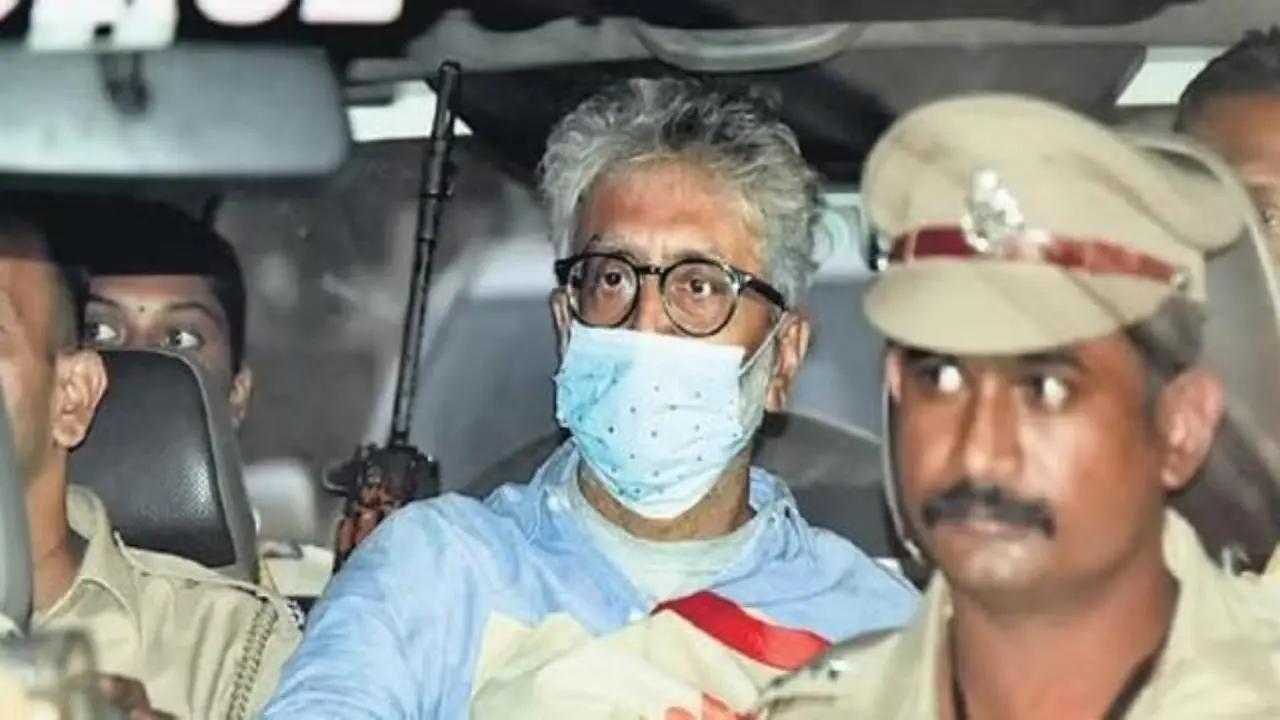Supreme Court granted Gautam Navlakha bail citing his continued incarceration and the likelihood of a lengthy trial in Bhima Koregaon case.

Gautam Navlakha/ File Photo
The Supreme Court has granted bail to Gautam Navlakha, an accused in the Bhima Koregaon case, lifting the stay on the Bombay High Court's bail ruling for the activist.
A bench comprising Justices MM Sundresh and SVN Bhatti lifted the stay on the High Court's ruling, adding that Navlakha must pay Rs 20 lakh for his house arrest per the conditions, reported ANI.
According to the report, Navlakha has been under house arrest at a public library in Mumbai since November 2022 due to ill health, and he has been in detention for more than four years without being charged.
In its judgement, the Supreme Court stated that extending the interim stay was unnecessary given Navlakha's continued incarceration and the likelihood of a lengthy trial, the report added.
Per the news agency report, the National Investigation Agency (NIA) filed an appeal against the Bombay High Court's December 2023 bail ruling for Navlakha.
Earlier, in November 2022, the Supreme Court allowed Navlakha, who was then incarcerated in Navi Mumbai's Taloja prison, to be placed under home arrest due to worsening health.
Navlakha, detained in August 2018, is one of the civil liberties activists charged in the Bhima Koregaon case under the harsh provisions of the Unlawful Activities (Prevention) Act (UAPA) for allegedly conspiring against the government. He was arrested by the investigation agency in April 2020, the report added.
Bombay HC grants bail to Gautam Navlakha
Earlier, the Bombay High Court granted bail to Navlakha. The bench comprising Justices AS Gadkari and SG Dige issued the bail order earlier this year.
According to a previous agency report, following a comprehensive analysis of the evidence, the High Court determined that there is no evidence of Navlakha's involvement in any terrorist operations. The decision stated that there was no evidence linking him to either covert or overt terrorist acts.
The High Court ruled that the evidence given by the National Investigation Agency (NIA) did not establish a reasonable basis for the accusations against Navlakha. The court determined that Navlakha's purpose was, at most, to commit the accused crime, but that this desire had not evolved to the preparation or attempt to carry out a terrorist act.
 Subscribe today by clicking the link and stay updated with the latest news!" Click here!
Subscribe today by clicking the link and stay updated with the latest news!" Click here!








